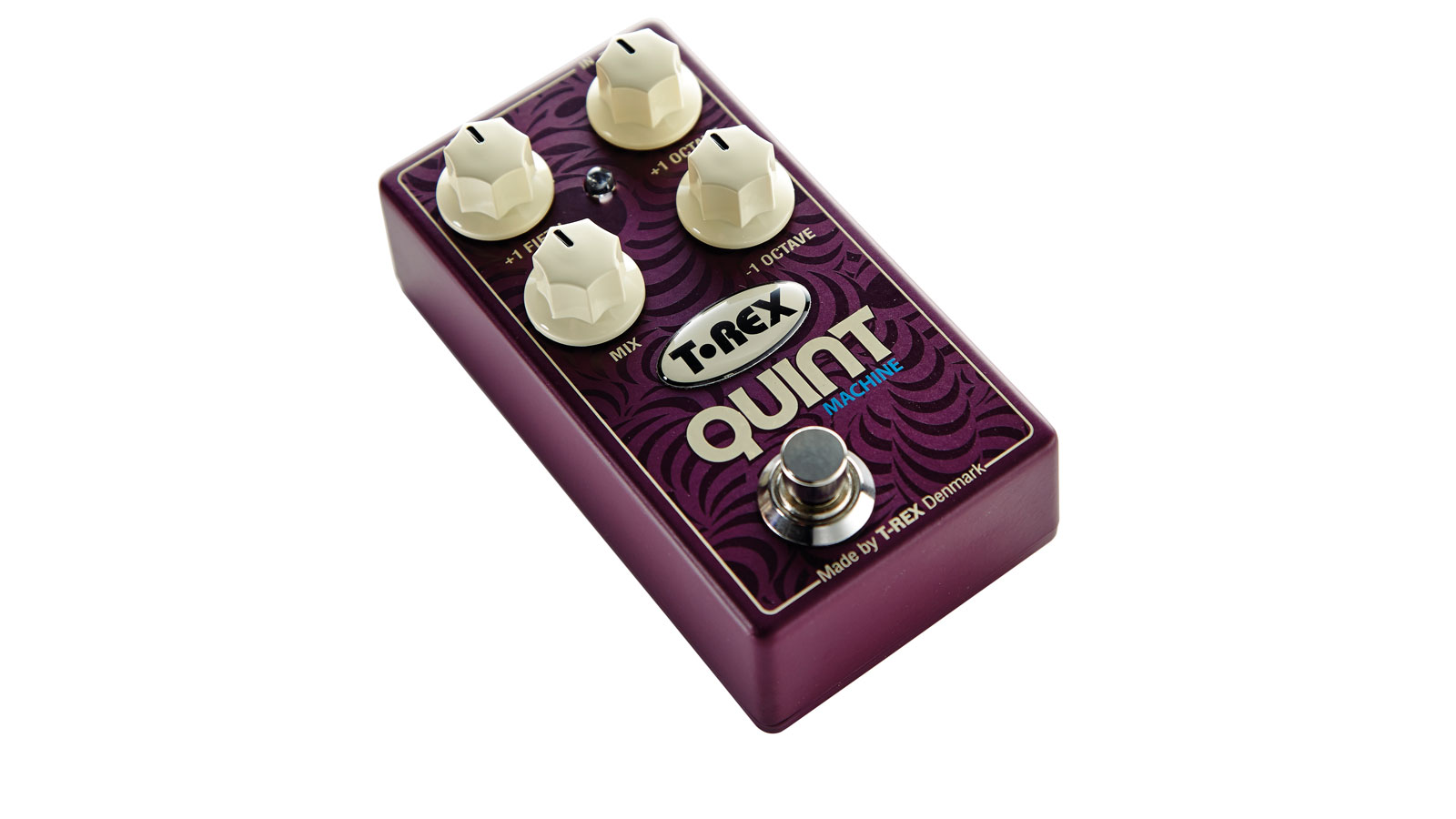MusicRadar Verdict
Add octaves and/or harmony with no fuss - a seriously good pitch pedal. We Billy No Mates types can pretend we're playing with a band...
Pros
- +
Tracking is decent. Easy to create decent sounding octave and harmony effects.
Cons
- -
Not much.
MusicRadar's got your back
Presumably named after the 5th interval rather than Robert Shaw's gnarly shark hunter from Jaws, the Quint Machine is more than your standard octave pedal in that it not only gives you notes an octave up and an octave down, but also gives you a fifth up.
"The fifth opens up opportunities for harmony guitar or single-note power 'chords'"
Each of the three intervals is dialled in in proportion with its own knob, and you get a mix knob to blend dry and pitch-shifted sound - this runs from totally dry to totally pitch-shifted.
Tracking works well and, although you wouldn't want to turn it up too far, adding in some upper octave will flavour your sound with some 12-string chime.
The lower octave is happy to be more prominent, and sounds good if you want some guitar/ bass unison lines, or just want to play a bass part from your guitar. The fifth opens up opportunities for harmony guitar or single-note power 'chords'.
Trevor Curwen has played guitar for several decades – he's also mimed it on the UK's Top of the Pops. Much of his working life, though, has been spent behind the mixing desk, during which time he has built up a solid collection of the guitars, amps and pedals needed to cover just about any studio session. He writes pedal reviews for Guitarist and has contributed to Total Guitar, MusicRadar and Future Music among others.
“I actually specifically remember making a deal with myself": Billie Eilish reveals what she had to do in order to become “looser and jazzier” with her vocal delivery
“These guitars travel around the world and they need to be road ready”: Jackson gives Misha Mansoor’s Juggernaut a new lick of paint, an ebony fingerboard and upgrades to stainless steel frets in signature model refresh
“I’m surprised and saddened anyone would have an issue with my performance that night”: Zak Starkey explains why he got fired from The Who











